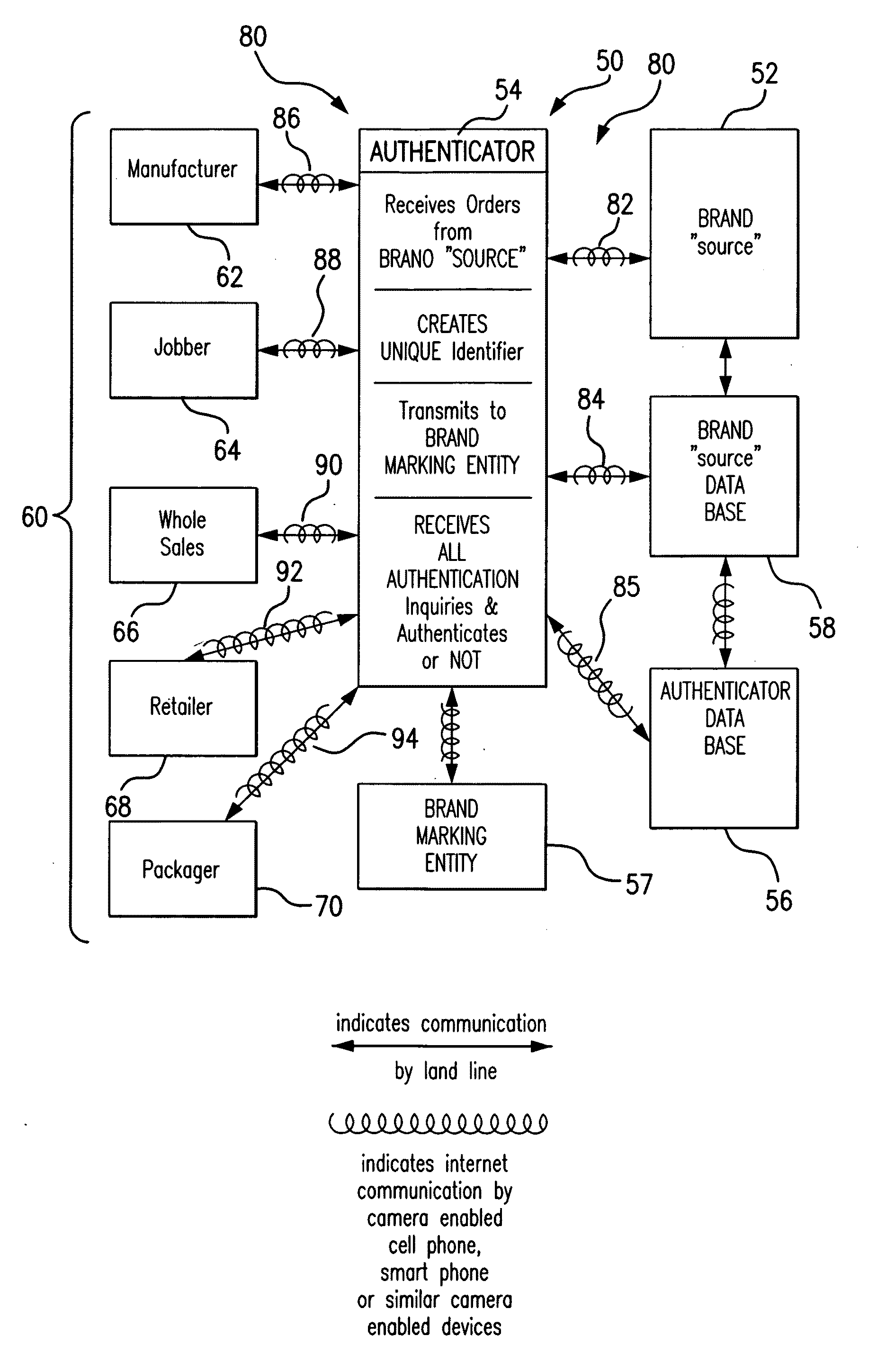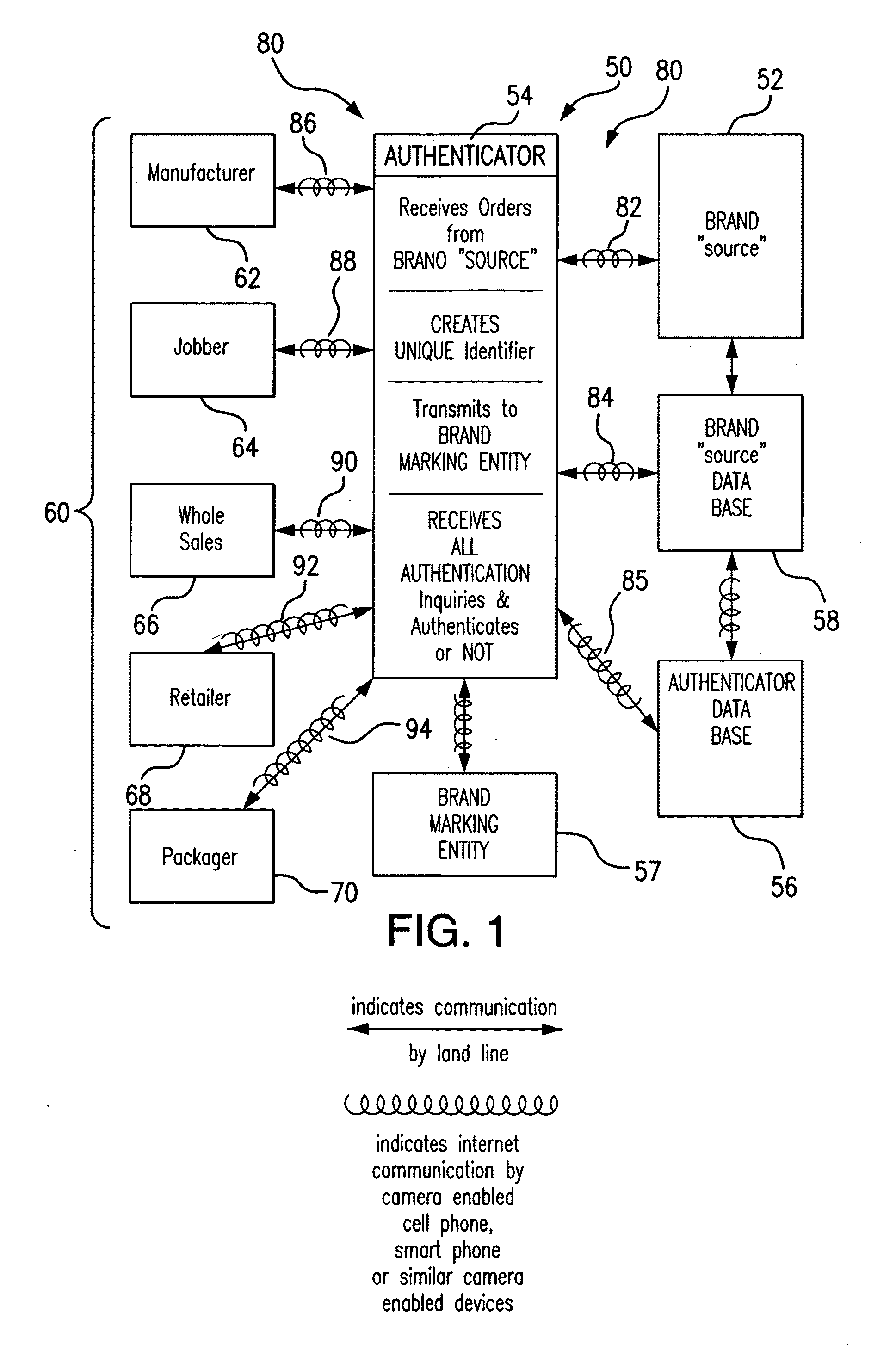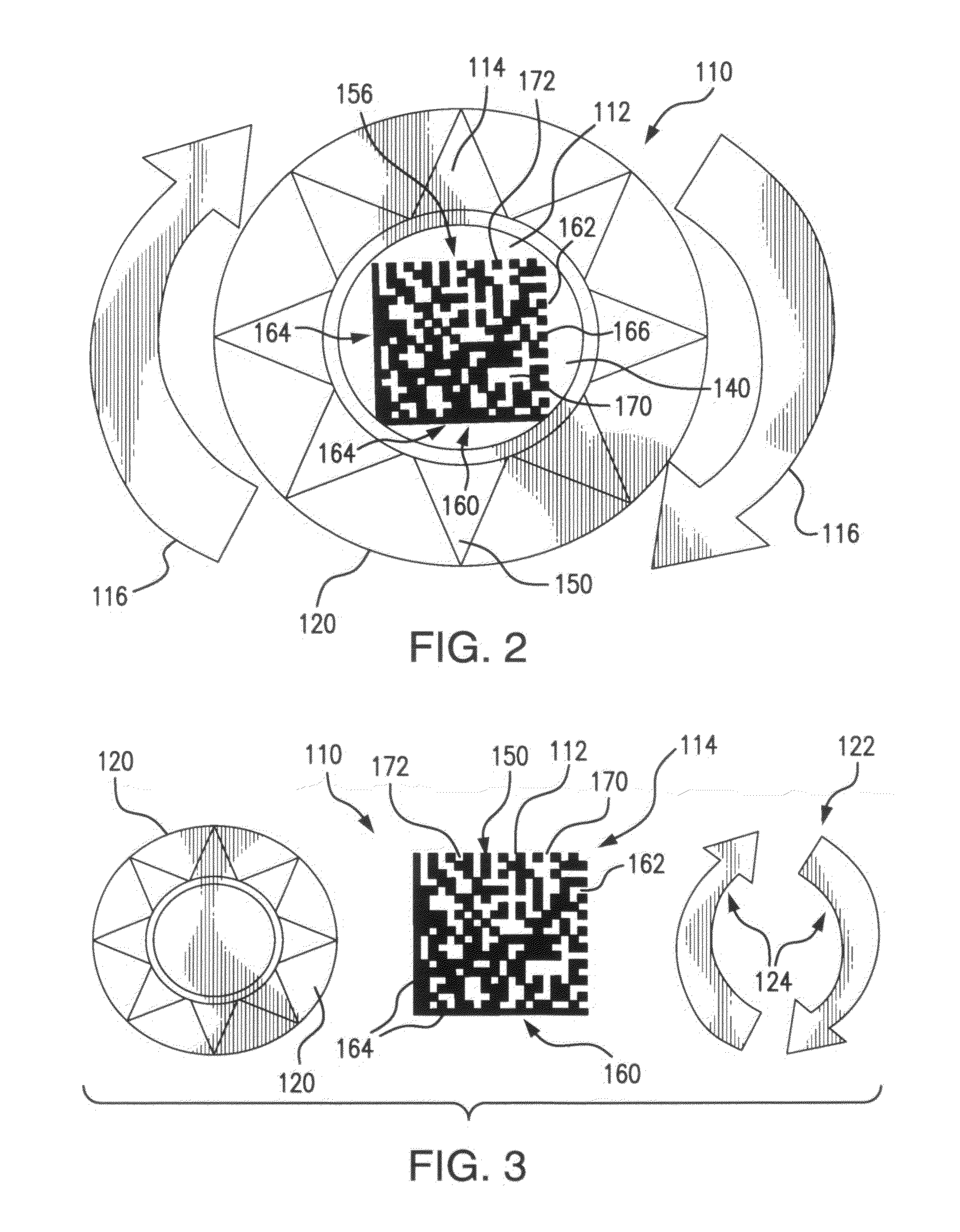Authentication of "SOURCE" for brands
a brand and authentication technology, applied in the field of authentication of the "source" of brands, can solve the problems of widespread counterfeiting, theft and diversion, and unscrupulous parties, and achieve the effect of promoting suppor
- Summary
- Abstract
- Description
- Claims
- Application Information
AI Technical Summary
Benefits of technology
Problems solved by technology
Method used
Image
Examples
Embodiment Construction
[0062]With reference to FIG. 1 there is generally shown a schematic block diagram for a BRAND “SOURCE” authentication system 50, including: a BRAND “SOURCE”52; an authenticator 54; a BRAND “SOURCE” Data Base 56; a BRAND MARKER 57; an authenticator Data Base 58; and a group of interested entities 60. The group of entities 60 includes entities, parties, persons, and the like, that may be, or are in fact, concerned with knowledge that the BRAND on an article, or articles, that they are involved with is, in fact, the BRAND of the BRAND “SOURCE” intended for the article(s). Group 60 is illustrated as including parties involved with the production and sale of the respective article(s) such as: a manufacturer 62, jobber 64, wholesaler 66, and / or retailer 68 for those article(s) and especially a prospective or actual purchaser 70 of the article(s). Other involved parties, such as auditors, customs officials, tax collectors, etc. and the like, may also be interested in authenticating the BRA...
PUM
 Login to View More
Login to View More Abstract
Description
Claims
Application Information
 Login to View More
Login to View More - R&D
- Intellectual Property
- Life Sciences
- Materials
- Tech Scout
- Unparalleled Data Quality
- Higher Quality Content
- 60% Fewer Hallucinations
Browse by: Latest US Patents, China's latest patents, Technical Efficacy Thesaurus, Application Domain, Technology Topic, Popular Technical Reports.
© 2025 PatSnap. All rights reserved.Legal|Privacy policy|Modern Slavery Act Transparency Statement|Sitemap|About US| Contact US: help@patsnap.com



